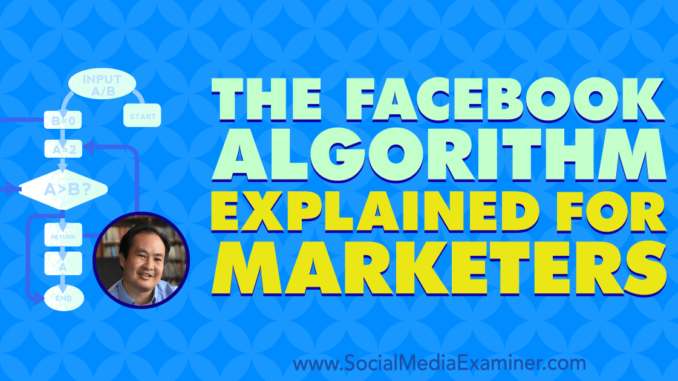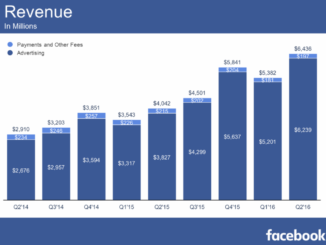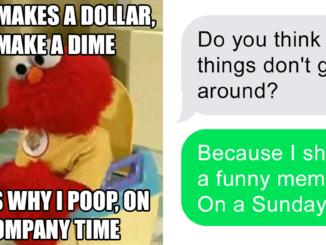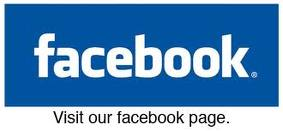
The Facebook Algorithm is updated constantly. The various weights and relevance Facebook may assign to these areas can be changed. But the overall use of the Four Factors should remain fairly constant. If used properly, you can use Facebook to your advantage in promoting your podcast, your profile or your business.
When the Facebook Algorithm looks at your posts, it does so in four areas: Inventory, Signals, Predictions and Scores. I talked in a previous article in-depth about what each of these areas actually represent.
Each person who has an account on Facebook is given their own individual score through the algorithm. This score is unique to each person and determined by their own connections, interests, and how they interact with various content.
So if you interact more than your friends or relatives concerning a post or article, your score for that post will be higher than your acquaintances. The Facebook algorithm will use this information to show you other content it thinks you will interact with as you move forward.
Let’s use an example to illustrate this:
Assume a friend you work with gives a post about robotic technology being implemented in your company. The post discusses how it will make the shipping and receiving area more efficient and will save the company millions of dollars per year in expenses.
Your friend then comments that it will cut the employee workforce for that department in half and that is where the savings will come from.
You “Like” that post. You then “share” that post and “tag” a couple of other co-workers in the process. You comment that you do not like it when “computers take over.”
Your friends then “like” and “share” with their social profiles. They leave comments as well.
Over the course of a few hours, the original poster, you and those who have commented carry on a conversation. You may even post a few links to other content the supports your viewpoint.
Others that do not work for your company also see this and interact. Leaving comments and sharing the post with their followers. Some of them post it into groups they are in and that generates additional comments and shares.
The Facebook Algorithm takes ALL of that data and gives this post a HIGH SCORE. There is a lot of interaction. A lot of sharing among various interests and groups. This is the type of post Facebook will promote to other feeds and timelines – even those whom you do not know. They could be “friends of friends” (in Facebook terminology).
In the process, Facebook determines that you need to see more from the person who originated the post. The Algorithm has determined you will probably be commenting and interacting with additional information this person posts on their own timeline and feed. Which, once you see it, you do!
The same would then go for other people. Facebook will show them more information from YOU.
Have you ever received those “Friend Recommendations” from Facebook? Those are not random recommendations. The Facebook Algorithm has determined that you and those people you are not connected with have a lot in common. They are trying to get you to connect so further interactions can occur between their contact list and your contact list. This in turn will grow Facebook!
Have you ever had one of those posts where you share something with the world – and nobody notices? Your mom may give a “like” but that is about it? I know I have. That used to confuse me. How can other people get tremendous traffic but I get almost none?
Well, here is how that works and the reason why those posts fail.
It involves scoring of the Algorithm again. But this time, a “low score” rather than a high score.
Let’s say you make a post about something that you have not talked about with your group before (or it has been an extremely long time since the last time you shared something along that topic line).
It could be something as random as posting a memory about your high school graduation.
Nobody comments. You may have 800 likes. But nobody comments. You may have 1,000 views. But only three comments and one share.
The Facebook algorithm is not going to give this post a high score at all. It will get a relatively LOW score, even though you had 800 or 1,000 likes. Facebook does not judge “likes” the same as “shares,” nor does it judge “shares” as much as comments and interaction.
Because this post has such a low score, it will not be shared among the majority of your contacts. Maybe your immediate family will see it. But that is about it. Unless you start to actually have a conversation with someone (anyone, even your family), this post is going nowhere.
Facebook, LinkedIn, Twitter, Instagram, Pinterest, every single social media platform out there, uses an algorithm to support the platform. This algorithm is used to determine what other people will interact with on the platform. Links that take people away from the platform receive lower scores.
This is important to remember as you post your information on these social media sites. If you want to increase your visibility, especially on Facebook, you need to use the algorithm to your advantage.
Proudly WWW.PONIREVO.COM
Source by Robert Thibodeau



